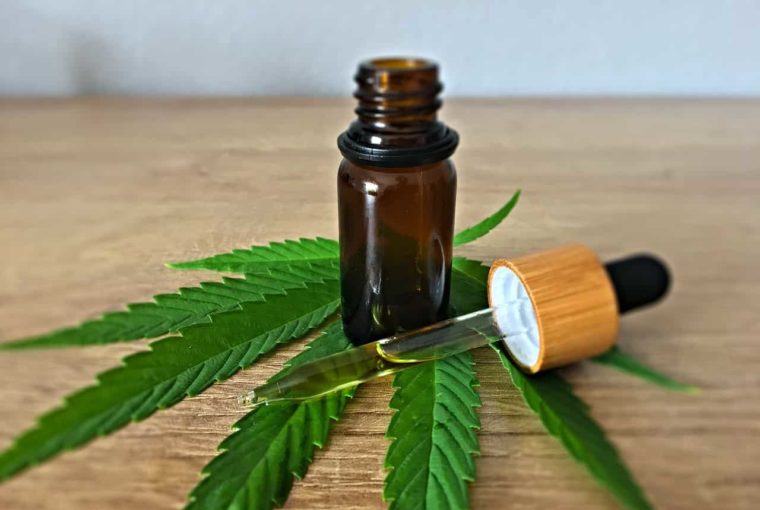What Is CBD?
CBD, who’s technical name is cannabidiol, is one of the over 100 chemical compounds known as cannabinoids that come from the Cannabis sativa plant. Extracted from the marijuana or hemp plant, CBD is becoming more credited for providing perceived benefits ailment relief for such things as chronic pain, anxiety, and insomnia. Contrary to THC, or tetrahydrocannabinol, the better-known compound from the marijuana plant, CBD doesn’t produce the intoxicating effects on the brain and body that cause users to experience a high.
The recent increase in popularity of CBD products has raised the interest of many consumers; so much so that a study conducted by University of California, San Deigo, Google searches for “CBD” have increased well over 100% annually since 2017.
If using a CBD product is something you have considered, understanding the differences between marijuana-derived CBD and hemp-derived CBD is paramount to your role as a responsible consumer. CBD products that are derived from hemp and contain no more than 0.3% THC are recognized as legal by U.S. federal law. Hemp,while grown for multiple uses like paper and cloth products, does contain trace amounts of THC. It is also used as an ingredient for food and beverages.
A significant win of CBD in most recent years was approval of Epidiolex by the FDA. Epidiolex, a pharmaceutical-grade CBD product, is used to reduce seizures in patients who suffer from two rare, severe forms of epilepsy. While this item is being used in the medical field, most of the health claims involving CBD do not yet have strong scientific evidence to support them.
However some of the ailments people utilize CBD to treat most commonly are:
- Chronic Pain—CBD’s potential benefits in relieving chronic pain has growing research surrounding it. Canada and the United Kingdom, plus 25 other countries have made and use a cannabis-based pain reliever, containing THC and CBD, called Sativex (the United States is not included in that list). It is noteworthy to mention that researchers are still working to determine the effectiveness of CBD alone in easing nerve pain and discomfort.
- Anxiety and Depression—Ongoing research around aiding those that suffer from anxiety and depression suggests that CBD may be able to help. As with most CBD treatments, additional research is still needed, but those who are frequent users of CBD are optimistic that the compound can aid in lessening their emotional responses and aid the relief of depression symptoms.
- Sleep Issues—Research conducted around CBD and sleep proposes that users can fall asleep more quickly, wake up fewer times in the night, and get an overall better night of rest. Additional research is still needed to fully support those claims but individuals looking for sleep support could find relief in CBD products.
What To Look For
The search for the right CBD should be taken seriously as the process is not entirely free of risk. CBD’s rapid increase in popularity has led to a stronger presence on social media and more and more endorsements by celebrities for CBD product’s considered benefits. Despite these endorsements, buyers should still make sure they know what look for when shopping for quality CBD products that will best serve their needs.
Current absence of regulations in the industry and the occasional lack of transparency has highlighted some serious points of concern that potential consumers of CBD products should be well versed on:
- There is potential for some product labels to be inaccurate or misleading
- Some products may contain additives that alter your mood outside of the perceived benefits you are expecting
- Some products may have things like pesticides, solvents, metals, and bacteria, from cannabis plants in them
- There are still many CBD products that have not been tested
A few more possible concerns to consider:
- Adverse Effects—There have been results from some patients treated with Epidiolex in clinical trials who experienced drowsiness, diarrhea, loss of appetite, and other side effects. Another reported side effect was liver damage was reported, so liver function should be monitored regularly in those using Epidiolex.
- Drug Interactions—There is a potential for CBD to interfere with some more common drugs and their effectiveness. Such medications as antibiotics and antifungal medications should be considered if implementing CBD into a regular routine as they can affect CBD’s potency.
- Quality Issues—Because the CBD market still has minimal regulation, it’s crucial that as a potential consumer, the products label may contain information that is not always accurate. As a potential user, being well versed in reading a product’s Certificate of Analysis (COA) is so important so that you have the ability to know what is actually in the product you are considering.
Certificate of Analysis (COA)
A Certificate of Analysis (COA) is a document from a laboratory showing the various cannabinoids and the number of them in a CBD product. Every batch of every product made by manufacturers of CBD is encouraged to be sent to a lab for complete testing to be done, and verification of the product’s contents. Following this recommendation ensures that customers buying the product are receiving what is advertised.
An important piece of information to note is that not all companies will freely share their COAs. When considering CBD products, if you are looking at a company that doesn’t openly share their COAs, it is recommended to contact them asking for more information prior to making a purchase. If the manufacturer’s website, customer service, or the product label itself does not provide you with the COAs form, it may be best to avoid purchasing from them. High caliber CBD companies will have their COAs easily available and will lab test their products. The COA is meant to establish transparency and quality control of the product for both the manufacturer and the customer.
While they might be available COAs are not always easy to read and they don’t typically look the same due in part to the fact they can be written in various formats.
Typically you will see COAs that show results in one three ways:
- Milligrams (mg) of CBD in the full product
- Milligrams (mg) of CBD per gram (g)
- Milligrams (mg) of CBD per milliliter (ml)
Note that this example uses CBD but the same goes for all of the other cannabinoids in the COA.
If the first example above is what the COA shows ,milligrams (mg) of CBD in the full product, then no further calculations are needed. This result shows the total amount of cannabinoids in the product. Compare this number against the label of the product to ensure a match.
If the COA you are reviewing reads like either of the last two examples, further calculations are needed. When making these calculations remember that a milliliter (ml) is a measurement of volume and a gram (g) is a measurement of weight. Most CBD products will show the size in ounces (oz) but you can convert that number into milliliters by remembering that 1oz will always equal 30ml. However two 30ml tinctures will not weigh the same in grams because weight (g) is affected by each ingredient in the product’s formulation.
Understanding COAs is very important when it comes to determining which company to purchase CBD products from. It is a good idea to use the following as a general rule of thumb: if a company doesn’t offer any of their lab results or COAs, you may want to skip out on purchasing from them.
If you are considering buying A88CBD™ products and would like to see the COAs, please visit here!




